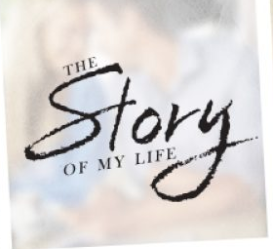Operation Inspiration
We all love stories, and storytelling is an important part of human existence. Stories make us feel and experience things we may not otherwise get to. They convey ideas and goals and emotion. And yes, they entertain us. Many stories are conjured up just for that last purpose, and it has given rise to certain phrases like “fairytale wedding,” or “storybook ending,” in which everything is beautiful and everyone lives happily ever after. Of course, these are just make-believe and can’t happen in real life, right?
R’ Berel Wein has said that all of his stories are true, just some haven’t happened yet. But they could, and perhaps, they should. That’s because the real stories that move and motivate humanity are the ones with a message. Not simply telling us about the past, these stories help to form the future.
I’m sure you could learn some lessons from typical kid’s stories too, like not to take an apple from an old woman in a forest, or “never enter a house made out of candy,” but how likely are those things to happen to you? Instead, I think that we should read and listen to stories of real people in real situations, and learn what can be done.
I shared a story recently of a man who was approached by a former student. Years earlier, a boy brought his new watch to school and during recess one of the other boys took it. After publicly asking for it to be returned, the Rebbi had no choice but to have the boys stand against the wall with their eyes closed. The rebbi walked along and checked their pockets until he found the watch. He went back to his desk and told all the boys to be seated. “The watch has been found. The boy who took it has a difficulty with his Yetzer Hara but he is not a bad boy.”
The former student, now a grown man himself, said, “You found the watch in my pocket but you never said anything to me. I thought you would criticize me privately but you never did. I thought to myself, “If that’s what being a rebbi means, then I want to do that.” I’ve been teaching Torah in cheder for 30 years now. But Rebbi, why didn’t you ever say anything to me?”
“The truth is,” said the teacher, “I didn’t know it was you. I had my eyes closed too.” Wow! This story was the discussion around many a Shabbos table.
But, do I know this story to be true? Have I checked all the facts? What if it didn’t happen? Wouldn’t that defeat the whole purpose? No, I haven’t and no, it wouldn’t. I know some storytellers will ensure to check all the facts down to the smallest detail. Sometimes it matters and sometimes it doesn’t. In this case, I don’t actually care whether it happened or not. What is important is that it COULD have happened, and, more importantly, it CAN happen in the future.
I don’t mean because it has the potential to eventually be true, but because that story will hopefully inspire people to become the protagonist in the story. A Rebbi may have thought that his role was to teach a misbehaving student a lesson, but now he knows that letting it slide a little and not shaming the child could go a lot further. The story empowers us to be different, better, and share the storybook ending in our own lives. Want another example?
In 1945, Arabs ran through the streets of Jerusalem throwing grenades indiscriminately. Scores of people were injured and many were killed. The morgue of the local hospital was filled with bodies draped in sheets. R’ Aryeh Levin z”l, showed up at the hospital with a photographer. He walked over to a gurney, pulled back the sheet, and the photographer took a picture. He moved to another corpse, and another, detailing the grisly carnage.
The Rabbanim were aghast. “R’ Aryeh,” they said, “perhaps public opinion is important, and you may want to show the world the atrocities of the Arabs, but where is your sensitivity and compassion for the families of these men? How will they feel when these pictures are sent to the press?”
“You misunderstand me,” said R’ Aryeh. “In a few days, relative peace will resume and these bodies will have been buried. Men will be missing and widows may become agunos, forbidden to remarry. It is compassion which moves me to act in a seemingly callous way. I am taking these pictures to aid these women in being permitted to remarry and carry on with their lives. It’s not enough to sympathize and empathize, we must take action to prevent greater sorrow.”
While most of us would not have thought of the repercussions of the attacks on the morrow, R’ Aryeh did. He knew that as bad as today was, tomorrow people would pick up the pieces and move on, and he had to prepare for that. And that is a lesson on so many levels.
© 2020 – All Rights Reserved
Did you enjoy this column? Feedback is welcome and appreciated. E-mail info@JewishSpeechWriter.com to share your thoughts. You never know when you may be the lamp that enlightens someone else.






